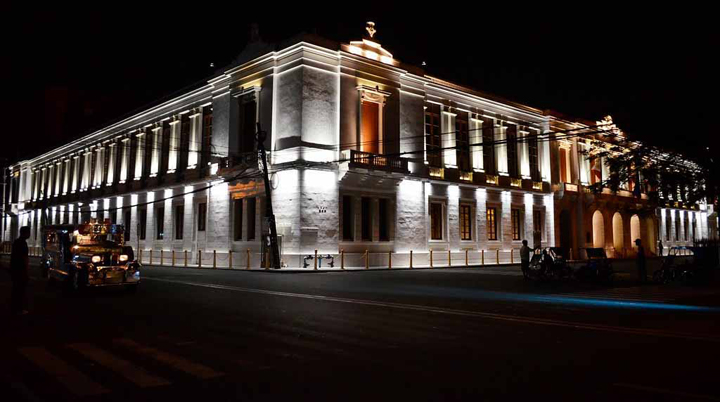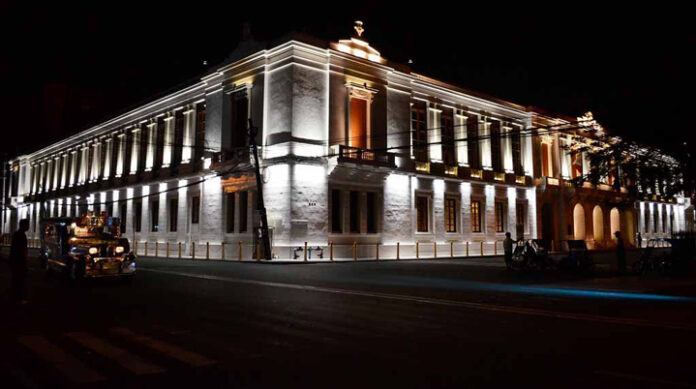
THE national government’s budget deficit in April this year narrowed to only P44.4 billion, plunging by 83.78 percent from last year’s P273.9 billion on the back of higher revenues and lower expenditures.
The narrower fiscal gap in April 2021 resulted from the 55.46-percent surge in revenues in April while expenditures dropped by 27.14 percent.
Budget deficit occurs when government expenditures exceed revenues.
Data from the Bureau of the Treasury showed revenues in April this year jumped to P291.9 billion from last year’s P187.8 billion, a feat attributed largely to the timing of income tax payments.
In April this year, the Bureau of Internal Revenue (BIR) collected P219 billion, posting a 142.03-percent increase from last year’s P90.5 billion.
Unlike last year, BIR did not extend this year the April 15 filing deadline for the annual income tax returns.
Despite the triple-digit growth year-on-year in its revenue collection for the month, BIR still fell short of its P235.23-billion revenue collection goal due to the reimposition of Enhanced Community Quarantine (ECQ) in National Capital Region (NCR) Plus.
For its part, the Bureau of Customs’ revenue take in the same month hit P51.8 billion, exceeding its P34.4-billion collection in April 2020 because of continued improvement in importation volume.
Non-tax revenues from Bureau of the Treasury, however, fell by 84.5 percent to P9 billion in April this year from P58.3 billion a year ago due to high base effect of last year’s remittances in compliance with the Bayanihan to Heal as One Act.
Revenues from other offices, including privatization proceeds, rose to P10.8 billion, a 140.45-percent hike from only P4.5 billion in April last year.
On the other hand, government expenditures in April slid to P336.3 billion from P461.7 billion in April 2020 owing to the high base effect of releases for Covid-19 emergency response and Bayanihan 1 measures at the height of the Luzon-wide ECQ last year.
Primary spending in April this year declined to P312.5 billion, slipping by 28.94 percent from last year’s P439.8 billion.
However, interest payments during the month rose by 8.86 percent year-on-year to P23.8 billion from P21.9 billion in the same month last year.
From January to April this year, the national government’s cumulative budget deficit reached P365.9 billion, inching up by 1.63 percent from last year’s budget gap of P360 billion.
Year-to-date government revenues amounted to P988.4 billion, a 3.95-percent increase from P950.8 billion in the same four-month period in 2020.
Likewise, expenditures from the January-to-April period also rose by 3.31 percent to P1.35 trillion from P1.31 trillion a year ago.
The Cabinet-level Development Budget Coordination Committee (DBCC) last week raised its projection for the budget deficit-to-GDP ratio this year to 9.4 percent or P1.86 trillion, from 8.9 percent or P1.78 trillion previously.
UnionBank Chief Economist Ruben Carlo Asuncion told the BusinessMirror a higher budget deficit is likely in the coming months given that the higher revenues and lower expenditures that occurred in April are “one-off.”
“Higher revenues may be one-off because April is usually personal income tax time and the expenditures as well because of the fiscal stimulus implementation in the same period last year,” Asuncion said.
“We have not even mentioned the funding for Bayanihan 3, which incidentally the economic managers have not committed to fund as of this time,” he added.
House Committee on Ways and Means Chairman Joey Sarte Salceda earlier admitted that the projected deficit will increase more or by .2 percentage points with passage of the P405.6-billion Bayanihan 3.
Finance Secretary Carlos G. Dominguez III earlier expressed concern on the projected rise in the country’s fiscal deficit, adding that any additional stimulus program has to be revenue-neutral.
Despite this, both Asuncion and Rizal Commercial Banking Corporation Chief Economist Michael Ricafort shrugged off concerns on the projected rise in the country’s fiscal deficit.
Asuncion said there is nothing to be really worried about, especially if government spending is done well.
Ricafort said the expected wider fiscal deficit is fine “as long as the debt-to-GDP ratio maintained/sustained around the international threshold of 60 percent, in view of the faster GDP growth expected in the latter part of 2021 and in 2022 onwards to also help sustain the ratio and the country’s overall fiscal performance.”
Read full article on BusinessMirror

